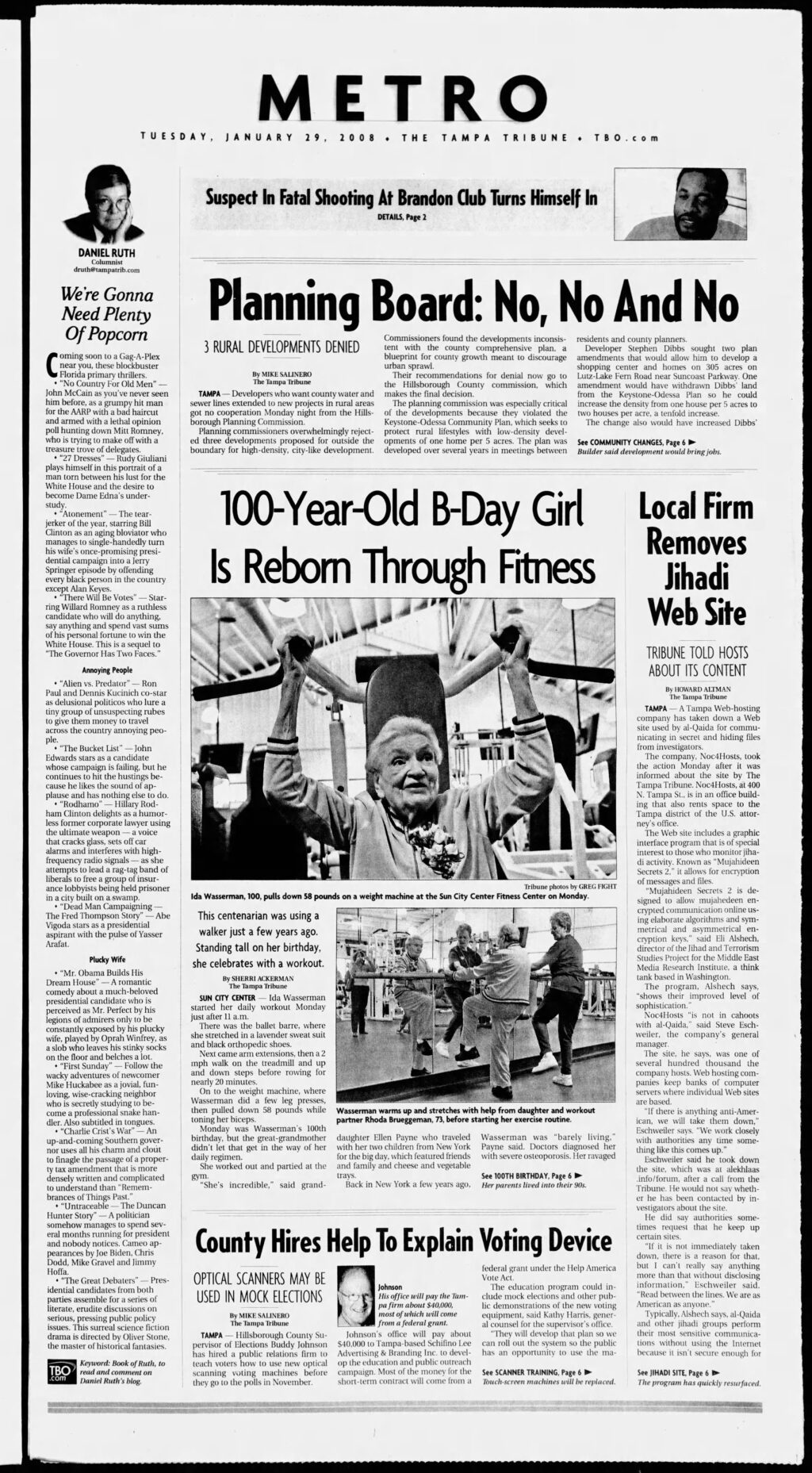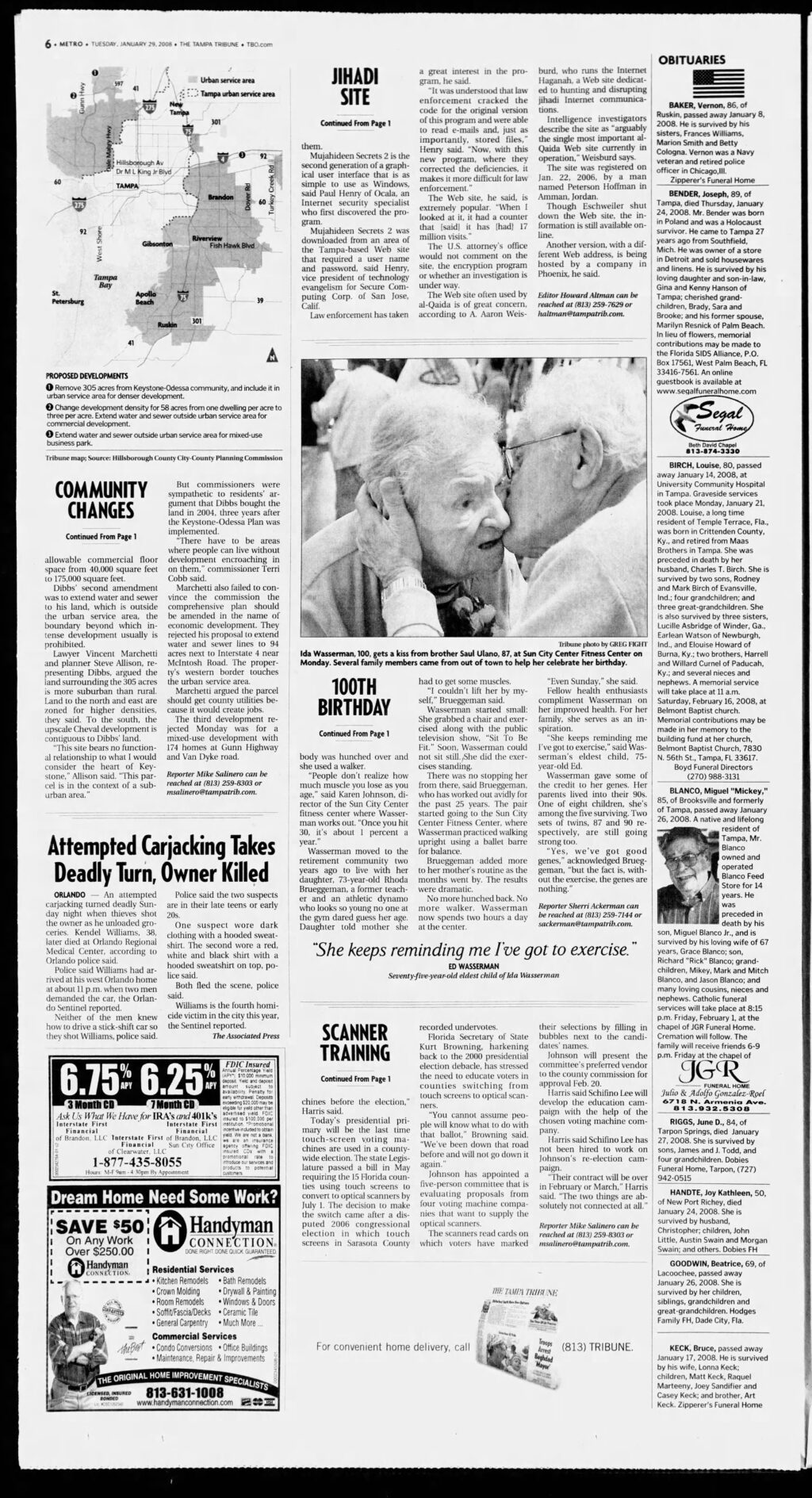Tribune Told Hosts About Its Content
TAMPA — A Tampa Web-hosting company has taken down a Web site used by al-Qaida for communicating in secret and hiding files from investigators.
The company, Noc4Hosts, took the action Monday after it was informed about the site by The Tampa Tribune. Noc4Hosts, at 400 N. Tampa St., is in an office building that also rents space to the Tampa district of the U.S. attorney’s office.
The Web site includes a graphic interface program that is of special interest to those who monitor jihadi activity. Known as “Mujahideen Secrets 2,” it allows for encryption of messages and files.
“Mujahideen Secrets 2 is designed to allow mujahedeen encrypted communication online using elaborate algorithms and symmetrical and asymmetrical encryption keys,” said Eli Alshech, director of the Jihad and Terrorism Studies Project for the Middle East Media Research Institute, a think tank based in Washington.
The program, Alshech says, “shows their improved level of sophistication.”
Noc4Hosts “is not in cahoots with al-Qaida,” said Steve Eschweiler, the company’s general manager.
The site, he says, was one of several hundred thousand the company hosts. Web hosting companies keep banks of computer servers where individual Web sites are based.
“If there is anything anti-American, we will take them down,” Eschweiler says. “We work closely with authorities any time something like this comes up.”
Eschweiler said he took down the site, which was at alekhlaas.info/forum, after a call from the Tribune. He would not say whether he has been contacted by investigators about the site.
He did say authorities sometimes request that he keep up certain sites.
“If it is not immediately taken down, there is a reason for that, but I can’t really say anything more than that without disclosing information,” Eschweiler said. “Read between the lines. We are as American as anyone.”
Typically, Alshech says, al-Qaida and other jihadi groups perform their most sensitive communications without using the Internet because it isn’t secure enough for them.
Mujahideen Secrets 2 is the second generation of a graphical user interface that is as simple to use as Windows, said Paul Henry of Ocala, an Internet security specialist who first discovered the program.
Mujahideen Secrets 2 was downloaded from an area of the Tampa-based Web site that required a user name and password, said Henry, vice president of technology evangelism for Secure Computing Corp. of San Jose, Calif.
Law enforcement has taken a great interest in the program, he said.
“It was understood that law enforcement cracked the code for the original version of this program and were able to read e-mails and, just as importantly, stored files,” Henry said. “Now, with this new program, where they corrected the deficiencies, it makes it more difficult for law enforcement.”
The Web site, he said, is extremely popular. “When I looked at it, it had a counter that [said] it has [had] 17 million visits.”
The U.S. attorney’s office would not comment on the site, the encryption program or whether an investigation is under way.
The Web site often used by al-Qaida is of great concern, according to A. Aaron Weisburd, who runs the Internet Haganah, a Web site dedicated to hunting and disrupting jihadi Internet communications.
Intelligence investigators describe the site as “arguably the single most important al-Qaida Web site currently in operation,” Weisburd says.
The site was registered on Jan. 22, 2006, by a man named Peterson Hoffman in Amman, Jordan.
Though Eschweiler shut down the Web site, the information is still available online.
Another version, with a different Web address is being hosted by a company in Phoenix, he said.


